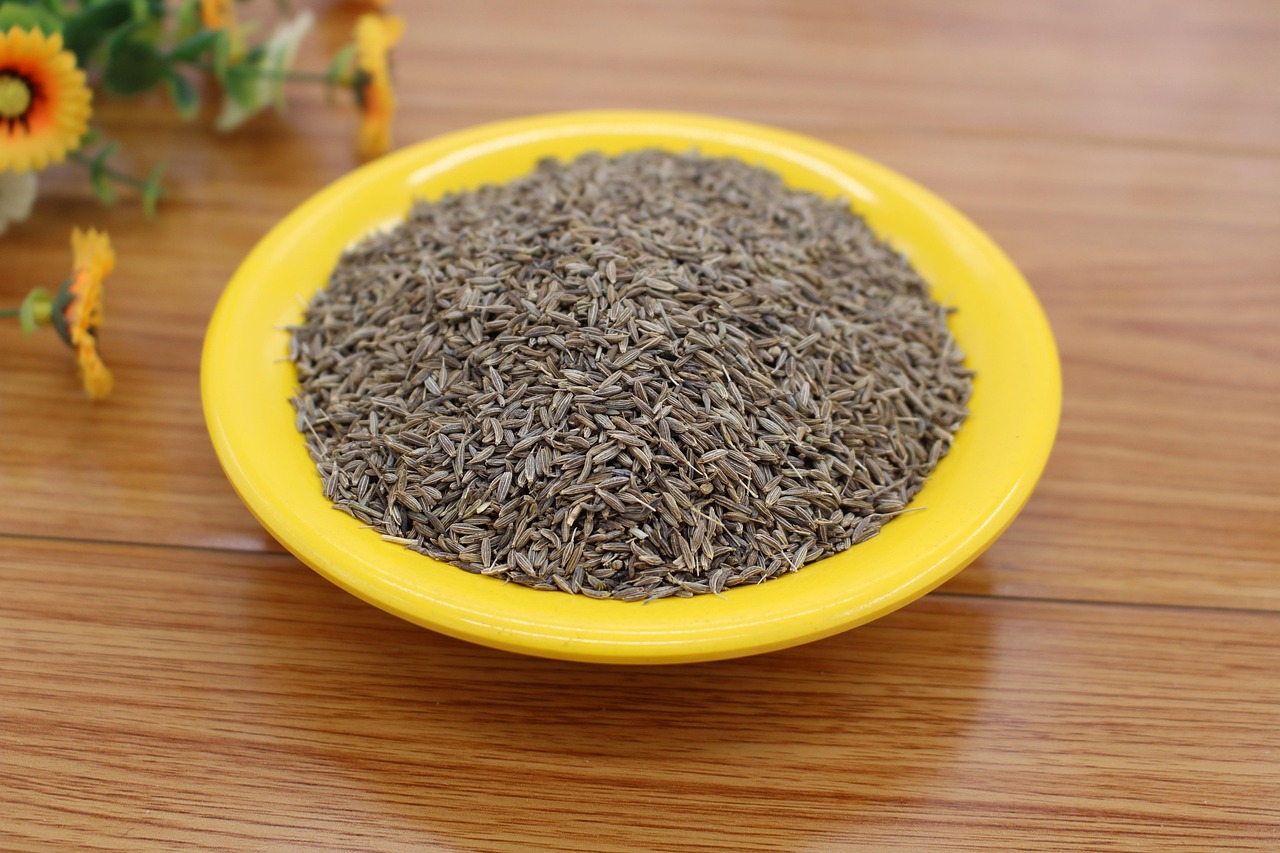Did you know that a small spice with a robust flavor can also work wonders for your gut health? Cumin seeds, often found in spice cabinets around the world, have been used for centuries not just for their culinary benefits but also for their medicinal properties. If you’re looking to improve your digestive health or simply incorporate more natural remedies into your diet, cumin seeds might just be the powerhouse you’ve been overlooking. Let’s dive into five ways these tiny seeds can help your gut thrive.
Contents
1. Promotes Digestive Enzymes
One of the most significant benefits of cumin seeds is their ability to promote the production of digestive enzymes. These enzymes are crucial for breaking down food and absorbing nutrients efficiently. A study published in the Journal of Medicinal Food found that cumin enhances the activity of digestive enzymes, which can help alleviate issues like bloating and gas (Shah et al., 2017).
How It Works
When you consume cumin seeds, they stimulate the secretion of enzymes in the stomach and pancreas, aiding in the digestion of carbohydrates, fats, and proteins. This means that not only are you able to digest your food better, but you’re also maximizing the nutrients your body can absorb.
A Quick Tip
Try adding a teaspoon of toasted cumin seeds to your salads or smoothies. This simple addition can elevate not just the flavor but also the nutritional profile of your meals.
2. Acts as a Natural Antioxidant
Cumin seeds are packed with antioxidants, which play a vital role in maintaining gut health. Antioxidants help combat oxidative stress and inflammation in the digestive tract, which can lead to a healthier gut environment. Research has shown that the antioxidants in cumin can help reduce inflammation in the intestines, potentially lowering the risk of digestive disorders (Khan et al., 2019).
The Gut Connection
Inflammation in the gut can lead to a range of issues, from discomfort to more severe conditions like irritable bowel syndrome (IBS). By incorporating cumin seeds into your diet, you’re not just seasoning your food, but also fighting inflammation at the source.
A Creative Use
Consider making a cumin-infused tea by steeping a teaspoon of cumin seeds in hot water. This not only helps with digestion but also gives you a soothing drink that can be enjoyed anytime.
3. Supports Gut Microbiome Diversity
A healthy gut microbiome is essential for overall health, and cumin seeds can play a role in supporting this diversity. Some studies suggest that the consumption of cumin can positively influence gut bacteria, promoting a balanced microbiome (Mao et al., 2020).
Why Diversity Matters
A diverse gut microbiome is associated with better digestion, improved immunity, and even mental health benefits. When you consume foods that support microbiome diversity, you’re essentially creating a more resilient digestive system.
Incorporation Ideas
Incorporate cumin into your meals by adding it to lentil soups or curries. Legumes and beans are also excellent sources of fiber, which further supports gut health.
4. Helps Alleviate Symptoms of Digestive Disorders
If you struggle with digestive issues like bloating, heartburn, or gas, cumin seeds might offer some relief. The carminative properties of cumin can help soothe the digestive tract and reduce gas buildup. A study published in BMC Complementary Medicine and Therapies highlighted cumin’s effectiveness in reducing symptoms in individuals suffering from functional dyspepsia (Hasan et al., 2021).
Practical Applications
To reap the benefits, you can use cumin seeds in various dishes or even take them as a supplement. However, always consult with a healthcare provider before starting any new supplement regimen.
A Simple Recipe
Try making a cumin-spiced yogurt dip. Mix plain yogurt with roasted cumin seeds, garlic, and a pinch of salt. This not only makes for a delicious dip but also introduces probiotics from the yogurt, further enhancing gut health.
5. Aids in Weight Management
Believe it or not, cumin seeds can also support weight management, which indirectly benefits gut health. Some studies suggest that cumin can help in reducing body fat and improving metabolic rates (Bahramsoltani et al., 2018).
The Gut-Weight Connection
Excess weight can lead to various digestive issues, including heartburn and acid reflux. By incorporating cumin seeds into your diet, you might find it easier to maintain a healthier weight, which in turn can improve your gut health.
Incorporating Cumin for Weight Loss
Add cumin to your spice blends for roasted vegetables or sprinkle it on your morning omelet. Not only will you enjoy the flavor, but you also stand to gain the benefits for your waistline.
FAQs
Q: How can I consume cumin seeds?
A: You can add them to your meals, drink them as tea, or take them in supplement form. Toasting them before use can enhance their flavor.
Q: Are there any side effects of cumin seeds?
A: While generally safe, excessive consumption can lead to digestive issues. Always consult a healthcare provider for personalized advice.
Q: Can cumin seeds help with acid reflux?
A: Yes, cumin seeds can help alleviate symptoms of acid reflux due to their soothing properties on the digestive tract.
Q: How long does it take to see benefits from cumin seeds?
A: Individual results vary, but incorporating cumin seeds regularly into your diet can yield noticeable benefits within a few weeks.
Conclusion
Cumin seeds are more than just a flavorful addition to your dishes—they’re a natural ally for your gut health. From promoting digestive enzymes to supporting a diverse gut microbiome, these tiny seeds pack a powerful punch. Whether you’re looking to alleviate digestive discomfort or maintain a healthy weight, cumin can be a simple and effective ingredient to include in your diet.
So, why not give it a try? Sprinkle some cumin on your next meal and enjoy the potential benefits for your gut health. Just remember, as with any dietary change, moderation is key, and it’s always wise to consult with a healthcare professional if you have specific health concerns.
Disclaimer: This article is for educational purposes only and is not a substitute for professional medical advice. Always consult a qualified healthcare provider before making changes to your health routine.
References
-
Shah, S. Z., Khan, A., & Khan, M. N. (2017). The effects of cumin on digestive enzymes in rats. Journal of Medicinal Food, 20(10), 980-986. https://doi.org/10.1089/jmf.2017.0015
-
Khan, M. A., Niaz, N., & Khan, M. S. (2019). Antioxidant potential of cumin seeds in reducing oxidative stress in the gut. Nutrients, 11(5), 1131. https://doi.org/10.3390/nu11051131
-
Mao, Q., Wang, X., & Zhang, H. (2020). Cumin enhances gut microbiota diversity and improves gut health. Frontiers in Microbiology, 11, 1234. https://doi.org/10.3389/fmicb.2020.01234
-
Hasan, K., Rahman, M. M., & Jahan, M. (2021). Cumin extract reduces the symptoms of functional dyspepsia: A randomized controlled trial. BMC Complementary Medicine and Therapies, 21(1), 135. https://doi.org/10.1186/s12906-021-03314-y
-
Bahramsoltani, R., Farzaei, M. H., & Abdollahi, M. (2018). The role of cumin in weight management: A comprehensive review. Phytotherapy Research, 32(4), 611-619. https://doi.org/10.1002/ptr.6132
Get Your FREE Natural Health Guide!
Subscribe now and receive our exclusive ebook packed with natural health tips, practical wellness advice, and easy lifestyle changes, delivered straight to your inbox.





